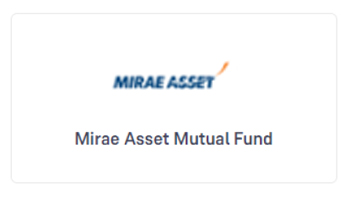Trusted by best Asset Management Company (AMC)









































What is an Asset Management Company?
An Asset Management Company (AMC) is an entity that manages the investments of pooled funds from individual investors. The primary goal of an AMC is to generate optimal returns for its investors in exchange for a fee. AMCs diversify portfolios by investing in a mix of high-risk and low-risk assets, such as stocks, bonds, real estate, shares, and pension funds.
Before selecting securities, AMCs consider various factors, including industry risk, market risk, return risk, and political risk. For instance, debt funds primarily invest in bonds and government securities to minimize risk, while equity-oriented funds focus on stocks and shares with higher risk and potential returns.
How Do Asset Management Company Manage Funds?
When you invest with an AMC, you are investing in a managed portfolio tailored to meet your financial objectives. Here’s how AMCs ensure they meet these objectives:
1
Market Research and Analysis
Asset managers conduct extensive market research, analyzing macroeconomic and microeconomic trends, as well as political factors. This research helps in selecting securities that are likely to meet or exceed the return expectations of investors.
2
Asset Allocation
Based on market research and the investor’s financial goals, asset managers allocate funds to different asset classes. For example, a debt-oriented fund might allocate 20% to equities to maintain low risk, whereas an equity-oriented fund would invest over 70% in equities, balancing the rest with debt. A balanced fund might distribute 60% to equities and 40% to debt to manage both risk and return.
3
Creating a Portfolio
After conducting research and deciding on asset allocation, asset managers create a portfolio. They decide which securities to buy, sell, or hold based on their market expertise, research findings, and the investment goals of the investors.
4
Review of Performance
Monitoring the performance of the portfolio is crucial. Asset managers regularly review and justify their decisions to buy, sell, or hold securities. They also provide regular updates to investors, detailing sales, repurchases, Net Asset Value (NAV), return on risk, portfolio changes, and any factors that might affect their investments.
How Do AMCs Operate?
AMCs gather funds from various investors with different financial goals and invest these pooled funds in a diversified portfolio. By doing so, they benefit from economies of scale and can negotiate discounts on purchases. The returns generated from the portfolio are then distributed among the investors.
AMCs charge for their services either on a fixed-fee basis or through commissions. Fixed fees are periodic amounts charged for managing the fund, providing predictability for investors.
Points to Consider Before Choosing an AMC:
When selecting an AMC, it is essential to evaluate the following parameters:
- Reputation: Look at the AMC’s consistency in performance over a period, such as 5 to 10 years. Review annual reports, market reviews, and compliance reports with SEBI, AMFI, and RBI.
- Fund Manager’s Credibility: The fund manager’s track record in managing assets is crucial. Their past performance reflects the AMC’s capability.
- Price and Value: Assess the price of the fund and the value and returns it offers.
- Fees and Commission: Understand whether the AMC charges a fixed fee or a commission. Fixed fees are preferred for their predictability.
Regulatory Bodies Governing Asset Management Company
AMCs operate under the supervision of trustees and are regulated by several bodies:
- Securities and Exchange Board of India (SEBI): The primary regulator of the capital market in India.
- Association of Mutual Funds in India (AMFI): A statutory body formed by mutual fund companies to promote transparency and ethics in the financial industry.
- Reserve Bank of India (RBI): Governs banks that sponsor AMCs along with SEBI and AMFI.
Guidelines for AMCs by Regulatory Bodies
Key guidelines for AMCs include:
- The Chairman of an AMC cannot be a Trustee of any mutual fund.
- Key personnel must have a clean track record with no involvement in fraudulent activities.
- AMCs should not act as Trustees.
- AMCs must maintain a net worth of at least Rs. 10 crores.
- Investment intentions must be disclosed in offer documents.
- Quarterly reports on activities and regulatory compliance must be submitted to trustees.
Reliability of AMCs Compared to Banks
Contrary to common belief, mutual fund companies and AMCs are as reliable as banks. Both are regulated by the RBI and the Ministry of Finance, ensuring safety and security in investments. AMCs are managed under the supervision of trustees governed by SEBI and AMFI, ensuring transparency and accountability.
Investing with an AMC can optimize wealth and save on taxes while ensuring professional management and oversight of your investments.



